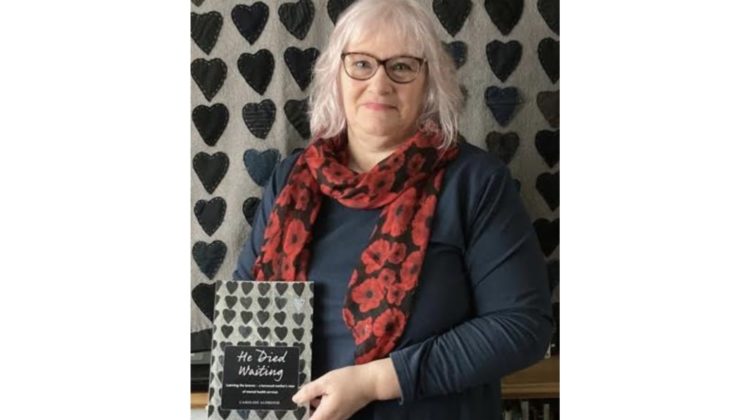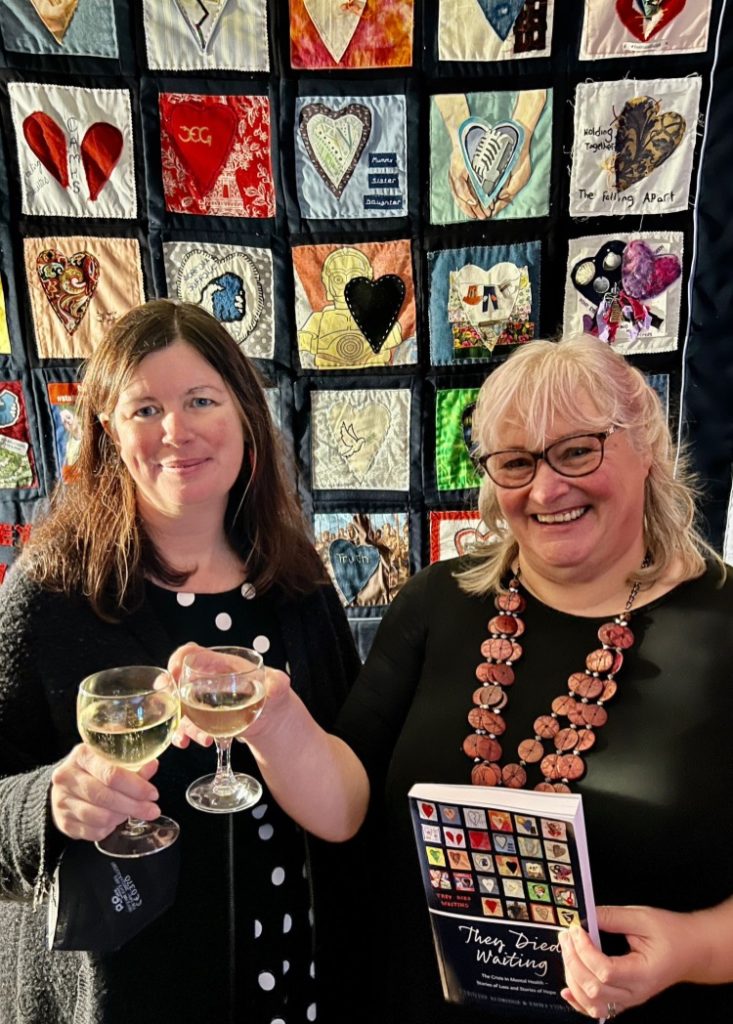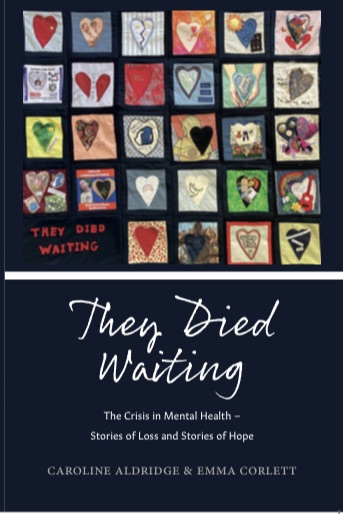
Caroline Aldridge is a social work educator and co-author of They Died Waiting, a collection of lived experience accounts about the crisis in the mental health service. Here, she explains how her latest book manages to contain stories of hope within its covers – and why she’s planning a trilogy
I would describe myself as an ordinary woman who has experienced extraordinary things. I could never have imagined the things that have happened to me or where my life path would lead.
My career has been varied and a mix of voluntary, employed, and self-employed roles. For over 20 years I worked primarily with children and families in a wide range of settings. I worked with social workers and those who were not so great and those who were excellent, and these were my push and pull into the profession. I had been thinking about becoming a social worker for a while. I made an enquiry just before one Christmas and was interviewed during the holidays and started the degree course on January 4th. It was one of those ‘meant to be’ things.
As a social worker I worked mostly with children and their parents or carers in safeguarding, fostering and adoption or children and adolescent mental health teams. I carried on studying and did an MA in Advanced Social Work and became a practice educator (supporting social work students in their placements). Then life took a tragic turn when my eldest son, Tim, died in 2014. I decided to move into move into social work lecturing and I added a Diploma in Education and Training to my qualifications.
In 2018, I tripped on the stairs and sustained a head injury. As part of my neurorehabilitation, I joined a creative writing group and started writing about Tim’s life and death and my personal and professional experiences. I ended up writing a book. He Died Waiting: Learning the Lessons – a Bereaved Mother’s View of Mental Health Services was published in late 2020. I had already connected with other bereaved relatives and realised how important it would be for their stories to be told but after I appeared on Woman’s Hour, I received hundreds of messages and emails from people who had lost their loved ones to mental illness.

I have known Emma Corlett for more than 15 years. When Emma was a practising mental health nurse, we had been colleagues. In recent years, I had become more involved in the Norfolk and Suffolk Campaign to Save Mental Health Services which Emma had co-founded. Through this both Emma and I regularly became aware of and supported people who had been bereaved because their loved one had not been able to access the support they needed. So, I knew Emma would be a ‘safe pair of hands’ as a co-editor to a collection of bereaved people’s experiences.
When writing They Died Waiting: The Crisis in Mental Health – Stories of Loss and Stories of Hope, it was important to me that I went about collecting the stories ethically and in a way that did not further traumatise the contributors. Even before we invited people to write a chapter a lot of thought went into how to make this an emotionally safe and positive experience. Something that has helped me to process and express my grief has been quilting. I researched using creative methods to help people share unspeakable things and became aware of Rebecca Jackson’s Speak Their Name Quilt Project where she facilitated people who were bereaved by suicide to make a collaborative quilt. Rebecca wrote a chapter for They Died Waiting and it eloquently portrays how, out of raw despair and the darkest of times, she was able to use her experiences to support other people through crafting. So, I decided to ask the contributors to They Died Waiting to make memorial hearts which I pieced together into a quilt which is used on the front cover.
The key to enabling people to tell their stories was recognising and responding to their individual needs. Some wanted to meet and discuss, others to share and be edited via email. Some needed to get their story down in a bit of a muddle and trust me to help them polish their thoughts into a coherent story. A few were gathered over sewing sessions where we explored some difficult topics creatively. It was an absolute privilege to be trusted with these stories and I did a lot of checking and re-checking to make sure the contributors were happy with their chapters and that the fully understood the implications of sharing their stories with the public.
I had lots of feedback from contributors about how therapeutic it had been for them to be supported to process their experiences and to be published. Repeatedly the contributors expressed how they felt they found their voices which was empowering for them.
Hope is visible in many forms in They Died Waiting. It is in the little things that are articulated about the comfort or support people received. It is in the descriptions of the various projects the contributors have got involved with or initiated following their devastating losses. We included some stories where the person did not die but their peers have and thought about the hope that shines out from survivors. For example, Lisa, who is a long-term mental health service-user, writes about the way trauma-informed practice has helped her begin to heal. Lisa has become an inspirational trainer and I co-wrote a chapter ‘Through a Trauma Lens’ with her. This is an example of the hope that comes from modelling a ‘no them and us’ approach found in the book because it was genuinely co-produced.
They Died Waiting has generated a lot of interest from people who commission or deliver mental health services, practitioners and students across health and social care, bereaved people and people who live with or care for someone who experiences mental distress. We held a small private launch, and I was overwhelmed by how many people turned up and made pledges to support Emma and I in promoting the book. As an independent publisher, there’s no marketing budget neither is there an established system of reaching potential readers. I am reliant on people telling others about the book. Which makes the success of He Died Waiting and the interest in They Died Waiting even more remarkable.
I hope that They Died Waiting brings comfort to bereaved relatives and friends because they know they are not alone and that there are people who care. Through the stories they will get a sense that although traumatic bereavements are not something we ‘get over’ it is possible to move from emotional agony to living again.
I hope that universities and mental health organisations buy the book and use it as a training tool. After I wrote He Died Waiting I took the rather scary step of giving up my substantive post and following where the book leads. So, I hope that people will commission me to deliver workshops to support learning from the lived experiences shared in They Died Waiting.
I have other writing projects in the pipeline that will complement these books and I hope they will be inspirational. If I can recoup the costs of publishing They Died Waiting, Emma and I would like to complete this trilogy with a book that focusses on all the wonderful things people are doing to prevent future deaths or support bereaved people. I will keep on speaking out until things improve because, most of all, I hope that if anyone I love ever needs mental health services in the future they will be safe, effective and compassionate.
He Died Waiting and They Died Waiting are available from learningsocialworker.com. Caroline can be contacted at caroline.aldridgesw@yahoo.com










Leave a Reply